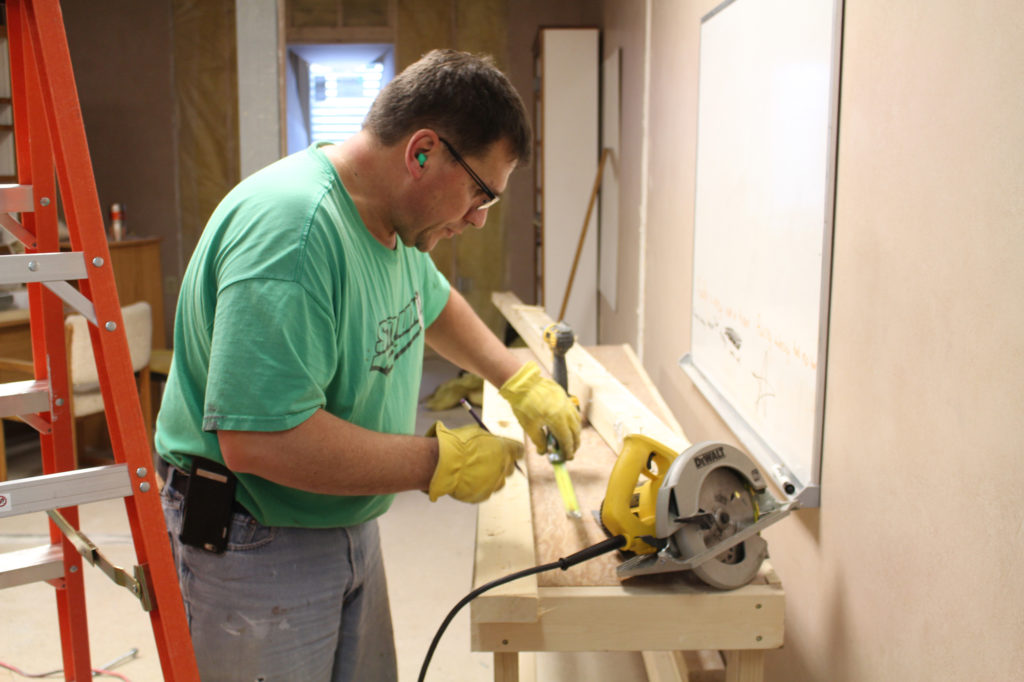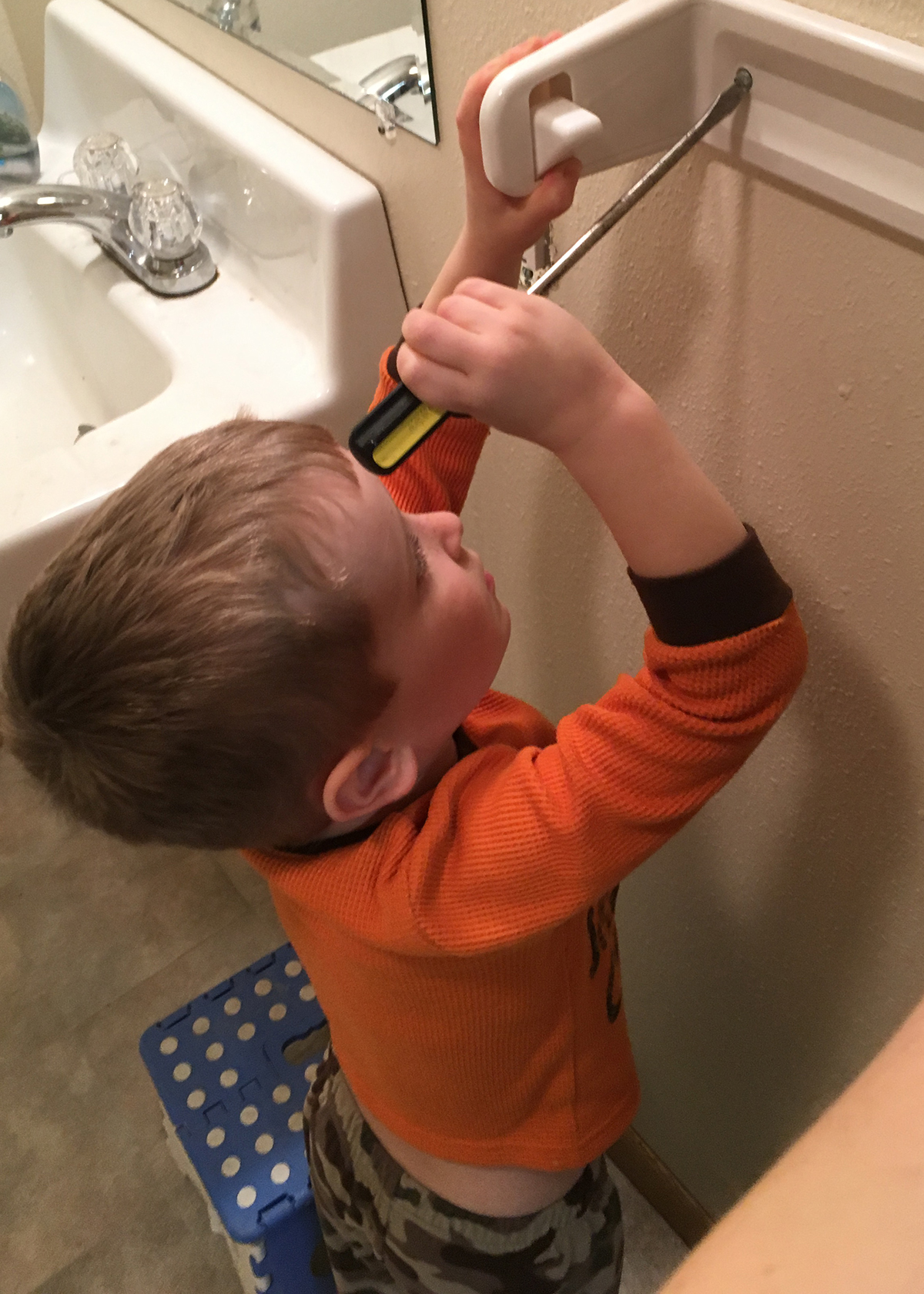
“Grim” is how working parents Jon and Laura Dronen describe the day care situation in Hazen, North Dakota.
Ever since the couple’s long-time babysitter retired in May 2016, the parents of two children under age eight have had four different providers, including a cousin they flew in from Oklahoma.
An au pair from China now lives with them, but her contract expires in a few months. The search will start anew.
“Our first provider gave us nine months’ notice before she retired. We got to April and we still hadn’t found anything,” said Jon, a procurement operations administrator at the Hazen office of Basin Electric Power Cooperative. “We had heard about the shortage of day care but we didn’t know it was this bad.”
“It got to the point where I brought this forward to my boss,” added Laura, an engineering supervisor at Dakota Gasification Co., a Basin Electric subsidiary. “I said, ‘I might have to go part-time or quit.’”
But help will soon be on the way. The Dronens, Basin Electric, other parents and businesses are part of the solution.
For the past few months, they have helped renovate an old church to open it May 1 as the Energy Capital Cooperative Child Care—the first day care center in Mercer County, where about 1,100 G&T employees work.
The co-op is the creation of Basin Electric/Dakota Gasification and seven other companies with large numbers of employees looking for safe, reliable and quality care for their babies, toddlers and school-age children.
If the “we’re all in this together” approach sounds familiar, there’s a reason, said Erin Huntimer, a project coordinations representative at the G&T. As a community representative, she was charged with finding solutions to their employees’ child care challenges.
Recognizing that parents elsewhere were “jumping through flaming hoops” to find child care, Huntimer had an idea.
“I thought, ‘Why not take a cooperative approach? Let’s see if we can’t use the same methods that brought electricity and telephone service to this part of the country to bring day care, too.”
Anecdotal evidence on the workplace toll supported the case for more childcare. As more employees at Basin Electric and its subsidiaries retired, younger workers, some with children or young families, were hired.
“Basin Electric was encountering difficulties in recruiting employees, or, in some instances, risking losing employees that we worked hard to recruit,” said Huntimer.
The G&T also helped fund a socioeconomic study by Mercer County Economic Development on deficits in local housing and daycare. In 2015, the county had a shortage of nearly 300 child care spaces, which will grow by more than 20 percent over the next 10 years.
And the child care that is available—1,500 licensed programs in North Dakota—meets only 40 percent of demand in the state.
“As a service that is necessary for families to work and live, the shortage of affordable child care may be inhibiting the Mercer County’s growth, much as the deficiency in housing is doing in the county,” the study said.

Armed with hard evidence, Basin Electric and Dakota Gasification met with other large employers to come up with ideas.
Participants include Sakakawea Medical Center and Coal Country Community Health Centers, which had identified adequacy of child care services as one of “the most pressing issues in the community” in a recent study.
Child care availability has affected the health groups’ staffing levels, said Darrold Bertsch, the groups’ CEO. “So very willingly, we all agreed to be part of this,” said Bertsch, now the day care co-op’s treasurer.
Each partner contributed cash, in-kind items or both to the day care co-op. Down payments for the church and a commercial convection oven came from the medical center and clinics.
Coyote Station, an investor-owned coal-based plant, donated $15,000 and a chain link fence. The public school is helping set up the kitchen and with food prep. Several partners committed firm contributions over a period of three to five years.
Recently, the day care co-op hired a director, Dana Santini, one of two-full time workers. Each partner has a guaranteed number of spots for employees and extended hours of operation—5:30 a.m. to 6:30 p.m.—will accommodate parents who work shifts.
“That’s the benefit of having employers and parents at the table,” said Huntimer. “If ever I’ve seen an example of servant leadership, this is it. From CEOs and managers to parents and retirees, everyone checks their title at the door. Our partners and volunteers have been fearless, getting their hands dirty to make this community dream a reality.”
As for the Dronens, the New Bethel Center, as it’s called locally, can’t open soon enough. With two young children and full-time jobs, it’s been hard to squeeze in weekend volunteering. But it’s been worth it, they said.
“It’s just for a defined period time,” said Laura. “Some people bring in their kids to help paint and some volunteers who don’t have kids, or whose kids are all grown, just show up to help get the center ready to open. It’s been a good thing for the community.”
Victoria A. Rocha is a staff writer for NRECA.
